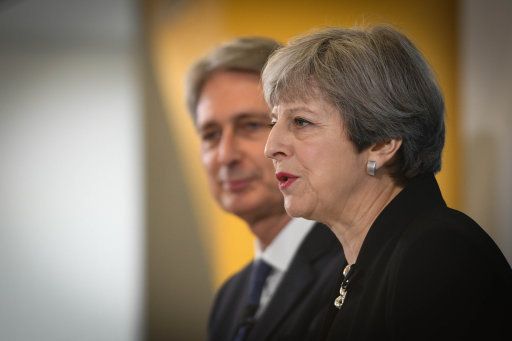It is widely forecasted that Theresa May is heading for an historic victory on 8th June—but just how historic?
According to Election Forecast UK, May could win up to 468 seats next month, a gain of 138. She could very well soon make the short list of leaders who have delivered three-figure gains in just one go. It's 20 years since Blair managed it in 1997, but you have to go back to 1945 to find another example, when Labour gained a whopping 239 seats. Margaret Thatcher won by a huge margin in 1983—but she only gained 38 seats.
The crucial question is: will this make the PM's job any easier? Perhaps not. For various reasons a large majority could actually end up getting in her way. One particular problem will confront May if she returns a sizeable majority next month: the 2017 Tory intake will be overwhelmingly pro-Brexit when compared with the Tory Party now. Nick Kent, who authored recent research on this subject for the campaign group InFacts, confirms: “The outcome of the general election is likely to be a swing towards Euroscepticism among Conservative MPs.” This could leave May with little wiggle room during the coming Brexit negotiations.
The Tory candidate list is not pleasant reading for Remainers. First, look at seats which the Conservatives already hold, whose MPs are stepping down in June. There are 12 of them, several of which were previously held by prominent Remainers. Tatton is one, which was held by George Osborne—a tiger of the "Remain" cause. Chichester, held by prominent Europhile Andrew Tyrie, is another. In total, eight of the 12 are held by Remainers.
The group which will replace them looks rather different. Just three of them backed Remain last year. Vicky Ford, standing in Chelmsford, was probably the most prominent of them: she is currently a Tory MEP. Three came out for Leave, while another three have no recorded preference. To repeat: just 33 per cent of Conservative candidates in these seats lent their backing to Remain. As Kent explains, "Given that more than half of Tory MPs supported Remain in the referendum, this is a significant shift." Already it's looking troubling for May and any compromise she might want to strike with Europe.
Now look at the 50 tightest marginal seats which are currently held by Labour: places like Chester and Halifax. If the polls are anywhere near correct then May can expect to triumph in lots of them come June.
The previous crop of MPs who represented these seats overwhelmingly supported Remain in 2016: they are Labour MPs, and almost all Labour MPs were Remainers. What about the Tory candidates for these constituencies? When you look at the numbers, "Leave" is again overrepresented relative to the party at large. Of those with a recorded preference, 60 per cent threw their weight behind Brexit last year. Among them are some big names: Esther McVey, former employment minister, is one.
When you add the Tory candidates together, those replacing retirees and those in Labour-held marginals, how many of them voted Brexit? Kent tells me the figure is 62 per cent.
If—likely when—these MPs reach the Commons, the House will swing in a eurosceptic direction. But more interesting will be the swing in the composition of the Tory Party—and the ramifications for the government.
The allegiances of the new cohort could wind up harming the PM. Even with the MPs she has now, she is caught between a rock and a hard place. Brexit will make Britons poorer: just last week the Bank of England warned that it will hit living standards. But if, as things worsen, she decides to soften her position, she will find herself unable to. As soon as she does, Brexiteers within her party will scream betrayal. The alliance she has formed with them is uneasy—and they correctly believe that she, having campaigned for "Remain" last year, is not one of their own.
If that weren't tough enough, whether she sees it this way or not, May now faces the prospect of even more Brexiteers causing trouble on her backbenches. Far from using her increased majority to secure a sensible Brexit deal, as some commentators have suggested she might, she will have no choice but to pursue a hard exit at all costs.
Large majorities aren't all they are cracked up to be; the most complicated process in British political history just became trickier still.
The Tory Party is about to change
Come 9th June, a substantially higher proportion of its MPs will be long-time Brexiteers
May 19, 2017

Prime minister Theresa May and Chancellor Philip Hammond ©Stefan Rousseau/PA Wire/PA Images











